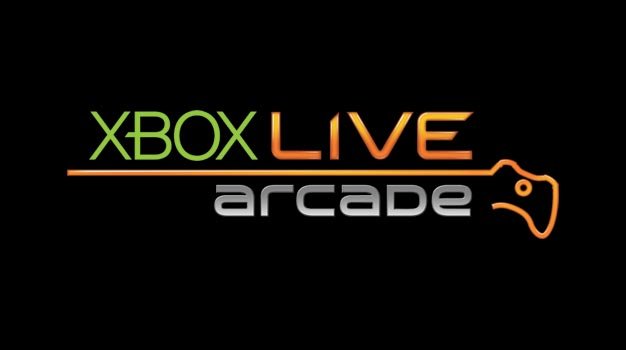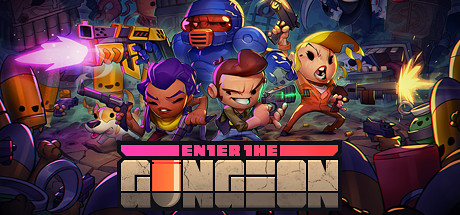 I personally find it very odd that, despite the incredible growth of the indie space, we never really even considered why many smaller developers build their products around the idea of a very formidable challenge. While analyzing this phenomenon we first have to understand the origins of it. In the early days of the indie movement sales of smaller games were driven primarily by Microsoft's Xbox Live Arcade. The was XBLA was marketed focused on a "By Gamers, for Gamers" notion that generated a lot of grassroots support for the program among the core gaming community. I would argue that it was this very concept of gamer legitimacy that first inspired indie developers to make their games hard. Getting the support of enthusiast gamers was quite obviously key to creating what turned out to be an entire new subset of the gaming industry. Difficulty was initially used to show the indie devs' commitment to cater to core gamers, as well as a homage to games of old. Over the years the indie game as an entity came to be known as a very tricky animal indeed. The problem with this assertion is that indie gaming is in a completely different place in 2016 and what made sense several years ago might actually be holding developers back.
I personally find it very odd that, despite the incredible growth of the indie space, we never really even considered why many smaller developers build their products around the idea of a very formidable challenge. While analyzing this phenomenon we first have to understand the origins of it. In the early days of the indie movement sales of smaller games were driven primarily by Microsoft's Xbox Live Arcade. The was XBLA was marketed focused on a "By Gamers, for Gamers" notion that generated a lot of grassroots support for the program among the core gaming community. I would argue that it was this very concept of gamer legitimacy that first inspired indie developers to make their games hard. Getting the support of enthusiast gamers was quite obviously key to creating what turned out to be an entire new subset of the gaming industry. Difficulty was initially used to show the indie devs' commitment to cater to core gamers, as well as a homage to games of old. Over the years the indie game as an entity came to be known as a very tricky animal indeed. The problem with this assertion is that indie gaming is in a completely different place in 2016 and what made sense several years ago might actually be holding developers back. Challenge has always been a central component of most video games. A lot of us play games to get the wonderful feeling of validation you get from overcoming the odds and achieving something. When games use difficulty to entice the player the results can be very compelling. Super Meat Boy is definitely a superb example of how to use difficulty to convey the ambiance the developers want to create. In Team Meat's 2011 creation you are faced with a ton of bite-size levels that require the player to perform different tiny feats of dexterity. The game is played at a crazy pace that keeps you immersed at all times, no matter the magnitude of your failures. The fail state is so brief of a moment that the player's brain doesn't even have time to properly register what transpired. This is why Meat Boy also incorporates a unique replay mechanic that shows all your different failures alongside the one successful attempt, all on one insane replay screen. Most of all, Super Meat Boy does not gate significant content and mechanics behind a difficulty wall. You are given all the tools from the get-go and your progress simply unlocks more of the very same addictive gameplay. This is why I consider the meaty indie classic to be a shining example of how indie devs should implement difficulty into their creations.
Challenge has always been a central component of most video games. A lot of us play games to get the wonderful feeling of validation you get from overcoming the odds and achieving something. When games use difficulty to entice the player the results can be very compelling. Super Meat Boy is definitely a superb example of how to use difficulty to convey the ambiance the developers want to create. In Team Meat's 2011 creation you are faced with a ton of bite-size levels that require the player to perform different tiny feats of dexterity. The game is played at a crazy pace that keeps you immersed at all times, no matter the magnitude of your failures. The fail state is so brief of a moment that the player's brain doesn't even have time to properly register what transpired. This is why Meat Boy also incorporates a unique replay mechanic that shows all your different failures alongside the one successful attempt, all on one insane replay screen. Most of all, Super Meat Boy does not gate significant content and mechanics behind a difficulty wall. You are given all the tools from the get-go and your progress simply unlocks more of the very same addictive gameplay. This is why I consider the meaty indie classic to be a shining example of how indie devs should implement difficulty into their creations.Unfortunately, a lot of smaller developers are struggling to discern when difficulty is truly indispensable to what they are trying to create and when it is merely a feature of their product. Let us take Enter the Gungeon as our test case, even though it has to be pointed out that nearly every game in the rogue-lite genre is guilty of the very same. In Enter the Gungeon you are tasked with fighting your way through a gun-themed dungeon using a wide variety of weapons. What makes the game great is the extremely creative theme and the endless supply of cool guns. Unfortunately, the game is also a very difficult experience that ,in all likelihood, may prove to be too difficult for quite many gamers. The lack of adjustable difficulty in Gungeon is a prime example of the unnecessary insistence on making indie titles hard. What pains me is the fact that including adjustable difficulty in a game like Enter the Gungeon would not make a difference to core players that enjoy the difficulty and, at the same time, it would certainly help to get the full experience for those of us not equipped with flexible fingers.
 In the last few years, thanks to the rise of the indies, we have experienced a diverse spectrum of amazing games that would've never seen the light of day otherwise. While I'm certainly thankful for that I'm also a bit disappointed that many developers still feel they have an obligation to make their games universally difficult. Modern indie titles are much more than ultra-difficult retro gimmicks. Making them accessible to as many players as possible should always be a priority. Obviously, accessibility should never interfere with artistic integrity of the dev. We have to remember that some games use difficulty to convey complex messages or evoke specific feelings in the player. I myself argued not so long ago that the inclusion of an easy mode in Dark Souls would interfere with what the game is at its core. Ultimately though, most games are not the From Software masterpiece and the difficulty is most often an ancillary feature that is just a small part of a much greater design. The obligation to keep all indie games rock hard is a relic of the early years of indie gaming. As we're seeing more and more indie titles enter the mainstream, the expectations put on these games change. Maintaining their legitimacy while opening up to new customers will certainly a challenge. Luckily, independent developers are a rather creative lot.
In the last few years, thanks to the rise of the indies, we have experienced a diverse spectrum of amazing games that would've never seen the light of day otherwise. While I'm certainly thankful for that I'm also a bit disappointed that many developers still feel they have an obligation to make their games universally difficult. Modern indie titles are much more than ultra-difficult retro gimmicks. Making them accessible to as many players as possible should always be a priority. Obviously, accessibility should never interfere with artistic integrity of the dev. We have to remember that some games use difficulty to convey complex messages or evoke specific feelings in the player. I myself argued not so long ago that the inclusion of an easy mode in Dark Souls would interfere with what the game is at its core. Ultimately though, most games are not the From Software masterpiece and the difficulty is most often an ancillary feature that is just a small part of a much greater design. The obligation to keep all indie games rock hard is a relic of the early years of indie gaming. As we're seeing more and more indie titles enter the mainstream, the expectations put on these games change. Maintaining their legitimacy while opening up to new customers will certainly a challenge. Luckily, independent developers are a rather creative lot.

Nice to be visiting your blog again, it has been months for me. Well this article that i’ve been waited for so long. I need this article to complete my assignment in the college, and it has same topic with your article. Thanks, great share.
ReplyDeleteMinecraft Server List